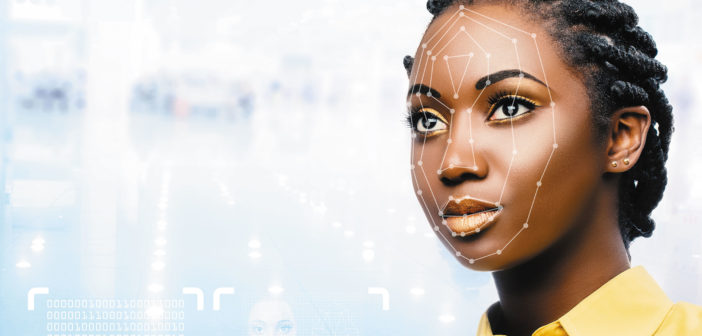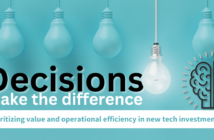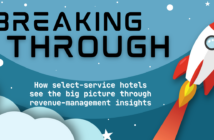by GEORGE BROSTOFF
With some borders closed and travel discouraged, it’s no surprise that during the COVID-19 pandemic, the hospitality industry was one of the hardest hit. Hotels are on pace to lose more than $500 million in room revenue, airlines have suspended or reduced services, and the hospitality industry experienced the highest number of job losses in the U.S. As small businesses receive relief from the government to lessen the effects of the pandemic, the hospitality industry still remains in a difficult position. Even as the economy reopens, there is no specific timeline on borders reopening, making it difficult to predict when the industry will resume with their normal revenues or services.
The other effect of the pandemic will be determining what “normal” looks like in a post-pandemic world. After months of stay-at-home and social-distancing orders, people may be hesitant to resume normal activities, such as public gatherings, even as governments give the all clear. They also will be increasingly wary of health and safety after months of being told to wear masks and not touch public surfaces. Industries that are more scrutinized for their hygiene measures will have to gain the public’s trust and assure them they are doing all they can to keep their customers and staff healthy. For the next year, these measures will be top of mind for the public as they navigate the new normal. For hotels, facial recognition technology can be used to improve public perception and help guests regain trust in the industry.
TECHNOLOGY AND HOTELS
Over the past few years, hotels have begun to implement technology to improve the guest experience. Smart and IoT technologies have been implemented in rooms to save guest settings – such as preferred temperature or alarm settings – each time they visit certain hotel chains or locations. Data has also been implemented to help create personalized experiences for guests. As more guests become accustomed to smart technology in their homes, hotels should match these expectations to maintain a competitive advantage. Implementing facial recognition software to maintain hygiene could be a logical next step for reopening post-pandemic.
BIOMETRIC TECHNOLOGY
Biometrics have long been identified as a secure option for access to accounts, technology, and buildings. Fingerprint authentication was the first form of biometric identification to appear in technology, and although it is not standard in most hotels, there have been many discussions on the benefits of fingerprint authentication for check-in or room access. Unfortunately, the COVID-19 virus has tabled these discussions, as this highly contagious disease can easily be spread through contact with surfaces, and fingerprint authentication still relies on common touchpoints. What if there was a way to eliminate touchpoints and replace them with hands-free access that is safer, more hygienic, and more convenient for guests?
FACIAL RECOGNITION FOR REDUCED TOUCHPOINTS
In a typical hotel experience, there are many touchpoints for guests to gain access to their room. When parking or using a valet, guests need to get a ticket from the machine or hand their keys over to the valet, along with a tip. Inside the hotel, there is paperwork to sign and credit cards and keys to exchange. After that, there are more common surfaces, such as elevator buttons and door handles. This means throughout the check-in process, there are at least 10 common touchpoints that can carry the virus. Even with the highest cleaning standards, the virus could be carried into any hotel at any point, making even the most hygienic hotel at risk. The solution to allowing hotels to reopen without jeopardizing the health of guests and hotel staff is a full, no-contact experience from the moment guests pull up to the front door until they enter their rooms.
With facial recognition, touchpoints can be eliminated entirely while still maintaining security and ease for hotel guests. As more people rely on masks to reduce the spread of the disease, 3D facial recognition software can still be employed. Sophisticated facial recognition software uses depth perception to create a digital face scan. Even if the face is obscured by a mask or by lack of lighting, the latest advancements in this technology make it secure. The key to doing this is to create a digital profile for each guest upon booking the room though a virtual wallet tied to a facial-recognition app. Guests can simply take a photo of themselves on their phone or laptop, associate it with a credit card and a form of ID, add their vehicle information and other relevant data, and they’re all set. From that point on, all transactions and interactions are enabled even before a guest arrives. Not only does this make for convenient setup, it puts the guest in complete control, addressing the privacy concerns that have plagued biometrics like facial recognition.
In addition to replacing all of the regular touchpoints that come from staying at a hotel, facial recognition can be employed in all scenarios related to the hotel experience. When a guest books an accommodation and creates their digital profile, all necessary information can be accessed by the hotel. When they park their car, the license plate is registered, eliminating the need for a physical parking ticket. Upon arriving, a kiosk can check in guests, tie their facial IDs to their rooms and keys, and save all credit card information to guests’ rooms. The entire check-in process can become automated. Elevators can use the same facial profile to let guests onto the appropriate floors and a camera-enabled lock can verify identities to open the right doors automatically. Not only does this increase hygiene, it also ensures security by controlling which parts of the hotel each guest can access.
RENEWING TRUST
Hotels must act quickly to keep guests and staff safe and improve the public perception of their hygiene measures. Technology to accomplish this already exists and has been deployed in other industries for years. To make this vision a reality, hotel owners and managers need to understand that the old “normal” will not be good enough to renew trust in the industry. Facial recognition technology could be exactly what’s needed for guest safety and for peace of mind. ?

George Brostoff is CEO of SensibleVision, which makes facial-recognition software. Brostoff has seven U.S. patents and has developed technology used by Dell and other major companies. He can be reached at [email protected].




